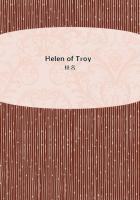"By the experience of above four hundred years," says Doctor Burn, "it seems time to lay aside all endeavours to bring under strict regulations, what in its own nature seems incapable of minute limitation; for if all persons in the same kind of work were to receive equal wages, there would be no emulation, and no room left for industry or ingenuity."Particular Acts of Parliament, however, still attempt sometimes to regulate wages in particular trades and in particular places.Thus the 8th of George III prohibits under heavy penalties all master tailors in London, and five miles round it, from giving, and their workmen from accepting, more than two shillings and sevenpence halfpenny a day, except in the case of a general mourning.Whenever the legislature attempts to regulate the differences between masters and their workmen, its counsellors are always the masters.When the regulation, therefore, is in favour of the workmen, it is always just and equitable; but it is sometimes otherwise when in favour of the masters.Thus the law which obliges the masters in several different trades to pay their workmen in money and not in goods is quite just and equitable.It imposes no real hardship upon the masters.It only obliges them to pay that value in money, which they pretended to pay, but did not always really pay, in goods.
This law is in favour of the workmen: but the 8th of George IIIis in favour of the masters.When masters combine together in order to reduce the wages of their workmen, they commonly enter into a private bond or agreement not to give more than a certain wage under a certain penalty.Were the workmen to enter into a contrary combination of the same kind, not to accept of a certain wage under a certain penalty, the law would punish them very severely; and if it dealt impartially, it would treat the masters in the same manner.But the 8th of George III enforces by law that very regulation which masters sometimes attempt to establish by such combinations.The complaint of the workmen, that it puts the ablest and most industrious upon the same footing with an ordinary workman, seems perfectly well founded.
In ancient times, too, it was usual to attempt to regulate the profits of merchants and other dealers, by rating the price both of provisions and other goods.The assize of bread is, so far as I know, the only remnant of this ancient usage.Where there is an exclusive corporation, it may perhaps be proper to regulate the price of the first necessary of life.But where there is none, the competition will regulate it much better than any assize.The method of fixing the assize of bread established by the 31st of George II could not be put in practice in Scotland, on account of a defect in the law; its execution depending upon the office of a clerk of the market, which does not exist there.This defect was not remedied till the 3rd of George III.The want of an assize occasioned no sensible inconveniency, and the establishment of one, in the few places where it has yet taken place, has produced no sensible advantage.
In the greater part of the towns of Scotland, however, there is an incorporation of bakers who claim exclusive privileges, though they are not very strictly guarded.
The proportion between the different rates both of wages and profit in the different employments of labour and stock, seems not to be much affected, as has already been observed, by the riches or poverty, the advancing, stationary, or declining state of the society.Such revolutions in the public welfare, though they affect the general rates both of wages and profit, must in the end affect them equally in all different employments.The proportion between them, therefore, must remain the same, and cannot well be altered, at least for any considerable time, by any such revolutions.
CHAPTER XI
Of the Rent of Land RENT, considered as the price paid for the use of land, is naturally the highest which the tenant can afford to pay in the actual circumstances of the land.In adjusting the terms of the lease, the landlord endeavours to leave him no greater share of the produce than what is sufficient to keep up the stock from which he furnishes the seed, pays the labour, and purchases and maintains the cattle and other instruments of husbandry, together with the ordinary profits of farming stock in the neighbourhood.
This is evidently the smallest share with which the tenant can content himself without being a loser, and the landlord seldom means to leave him any more.Whatever part of the produce, or, what is the same thing, whatever part of its price is over and above this share, he naturally endeavours to reserve to himself as the rent of his land, which is evidently the highest the tenant can afford to pay in the actual circumstances of the land.
Sometimes, indeed, the liberality, more frequently the ignorance, of the landlord, makes him accept of somewhat less than this portion; and sometimes too, though more rarely, the ignorance of the tenant makes him undertake to pay somewhat more, or to content himself with somewhat less than the ordinary profits of farming stock in the neighbourhood.This portion, however, may still be considered as the natural rent of land, or the rent for which it is naturally meant that land should for the most part be let.
The rent of land, it may be thought, is frequently no more than a reasonable profit or interest for the stock laid out by the landlord upon its improvement.This, no doubt, may be partly the case upon some occasions; for it can scarce ever be more than partly the case.The landlord demands a rent even for unimproved land, and the supposed interest or profit upon the expense of improvement is generally an addition to this original rent.Those improvements, besides, are not always made by the stock of the landlord, but sometimes by that of the tenant.When the lease comes to be renewed, however, the landlord commonly demands the same augmentation of rent as if they had been all made by his own.















